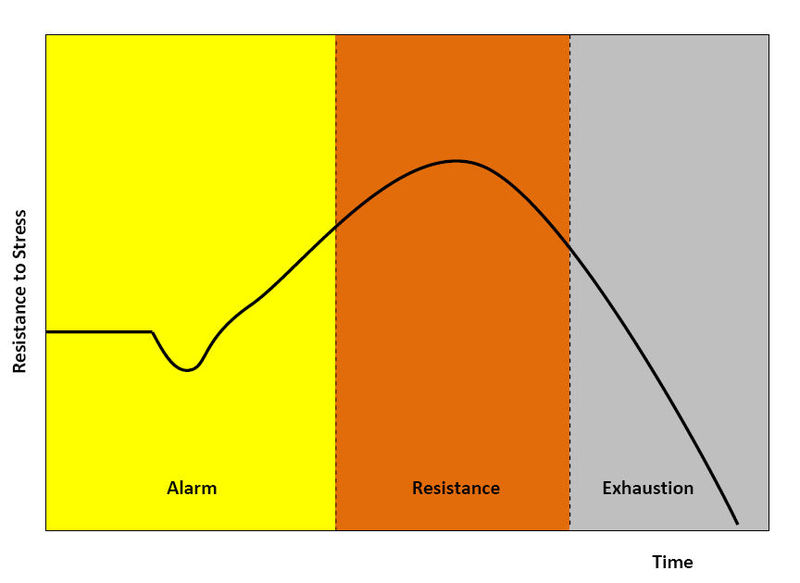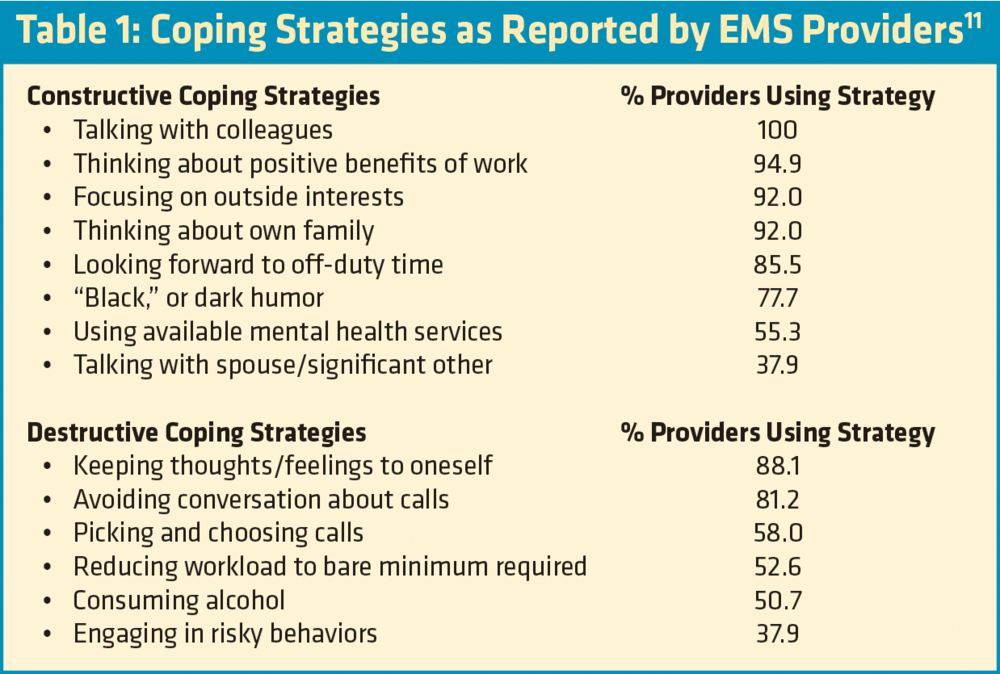Can You Handle the Stress of Being a First Responder?
A career as a first responder is one of the most stressful jobs imaginable. But it’s also one of the most rewarding—if you’re up to the challenge.
Having a thorough understanding of the kinds of stresses you might face as a first responder, as well as being able to identify these stresses, is an essential part of successfully fulfilling the role. In this article, we’ll guide you through the ins and outs of stress on the job as an EMT to help you better understand the challenges.
Typical Stressors EMTs Face on a Daily Basis
With long hours and life-and-death situations, choosing a career as an EMT should be taken seriously. Here are some of the challenges they typically experience on the job.
Long Hours
EMTs need to be on call round the clock—which means they are sometimes required to work 24-hour shifts with back-to-back emergencies.
Medical Emergencies
EMTs generally respond to 911 calls from patients in cardiac arrest, catastrophic bleeding, or diabetic emergency. They also deal with drunken patients, drug overdoses, and the mentally ill. These situations aren’t just taxing in the moment—they can have lasting and potentially traumatizing effects on a first responder.
Emotional Trauma
First responders face traumatized patients, aggressive individuals, and even death. They need to be able to cope with life-and-death scenarios that could lead to emotional trauma.
How to Spot Stress in EMTs
Stress can manifest in a variety of ways. For EMTs, here are scenarios to consider:
1. Alarm
When you go into fight-or-flight mode, the body automatically reacts to perceived stress. Adrenaline kicks in and your heart rate increases. As an EMT, this will commonly happen when, for example, you receive an emergency 911 call, or when dealing with fraught emotions on the job.
2. Resistance
If the situation continues, the body stays at a higher metabolic level in an attempt to offset the stress. This puts strain on the body and it slowly becomes depleted. EMTs may feel tired, agitated, or struggle to eat healthily.
3. Exhaustion
After being exposed to prolonged periods of stress, the body becomes exhausted. There is a loss of energy and the brain doesn’t function as it should—thereby making it difficult to remain cognizant during emergencies. If this continues without proper rest and recuperation, bodily functions begin to deteriorate, which can lead to a range of health issues including depression, anxiety, heart disease, diabetes, and digestion problems. It’s therefore vital that EMTs learn to recognize their body’s reaction to stress.

What Does Stress Typically Look Like in EMTs?
There’s no easy answer since everyone processes stress differently. It’s nevertheless important to be able to recognize the signs in yourself and others who might not be able to recognize the issues themselves. Take note of the following possible signs:
- Changes in behavior
- An inability to concentrate
- Aggression or bad moods
- Sleeping more or less than normal
- Being withdrawn and quiet
- Avoiding social situations
- Sudden weight loss or weight gain
- Minor ailments (e.g., headaches, sweating, stomach upsets)
- Mental illness, including anxiety, depression, and insomnia (73%of people have stress that impacts their mental health)
It’s important to listen to your body. “Our bodies try to tell us to slow down, and we just don’t listen,” says Alice Domar, PhD, founder of the Domar Center for Mind/Body Health. “If you ignore the distress signals for too long, they can turn into health problems.” Watch out for these biological hints that it’s time for a breather.
How EMTs Can Deal with Stress
There’s no way to entirely avoid stress. However, there are healthy habits that can improve your ability to process stressful situations—from maintaining your physical health to being able to recognize the warning signs early.
Regular Breaks Are a Well-Being Must
Working long shifts necessitates taking regular breaks—from short, frequent breaks to ensuring you relax on days off. As much as possible, establish a work-life balance that includes mindfulness, getting a good night’s sleep, spending time with friends and family, or indulging in hobbies.
Promote a Positive Work Culture
Maintain open and collaborative communication with colleagues and good relationships with those around you. Make time to socialize with colleagues to strengthen your bonds, and address issues early.
Talk About Your Experiences
A problem shared is a problem halved. If you’re worried about something or struggling with stress, then seek out colleagues who will be able to offer their support and tips. Also, seek out support from upper management who should be able to provide guidance regarding stress and mental health issues, or at least point you in the direction to address well-being issues.
The Substance Abuse and Mental Health Services Administration (SAMHSA) recommends:
“To improve the behavioral health of the first responders, a cooperative effort is needed between organizational leadership and coworkers to establish a work environment that provides adequate training and ensures the resiliency and health of first responders by protecting them from overwork and excessive stress and supporting them in seeking help when needed. First responders carry the weight of their own safety and well-being as well as those they serve, and thus making programmatic changes to educate them, offer them support, and protect their health and well-being would reduce the risk of burnout, fatigue, or other behavioral health issues associated with being overworked, uncertain, or stressed.”
Learn About Critical Incident Stress Management (CISM)
Stress is a very real problem for EMTs. According to one survey, 22% of emergency ambulance workers had evidence of PTSD, and about as many had evidence of anxiety. Almost 10% had signs of clinical depression.
CISM can be a helpful form of crisis intervention designed to calm emotions both before and stressful events. It helps you process high-stress situations once they’ve happened so you can clear your mind and effectively get the job done.
You may also be referred to a Critical Incident Stress Debriefing (CISD) which is used to help EMTs deal with traumatic incidents both for themselves, and as a way to help patients and victims cope.

Final Thoughts
An EMT career is both extremely stressful and incredibly rewarding. Although stress can become a very real hazard of the job, take care of yourself and look out for colleagues to be in a better position to keep it under control. Remember: You’re not alone—there’s a support system to help you handle the stress, and thrive.
If you’re passionate about helping people in emergencies, and up for the challenges—and rewards—then being an EMT might be the profession for you. Learn more about available EMT programs from HCI.














